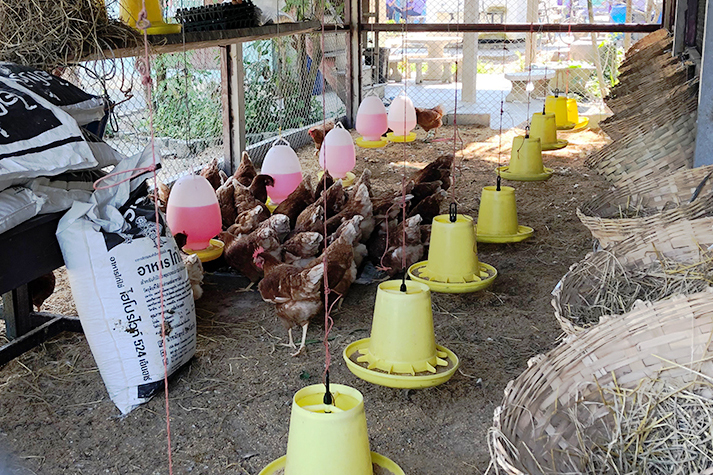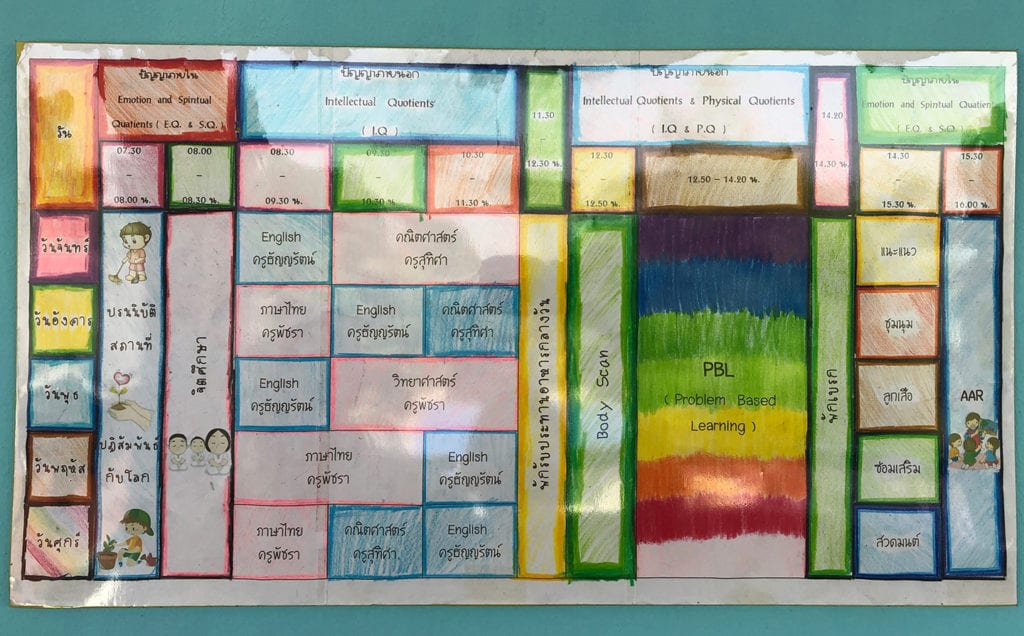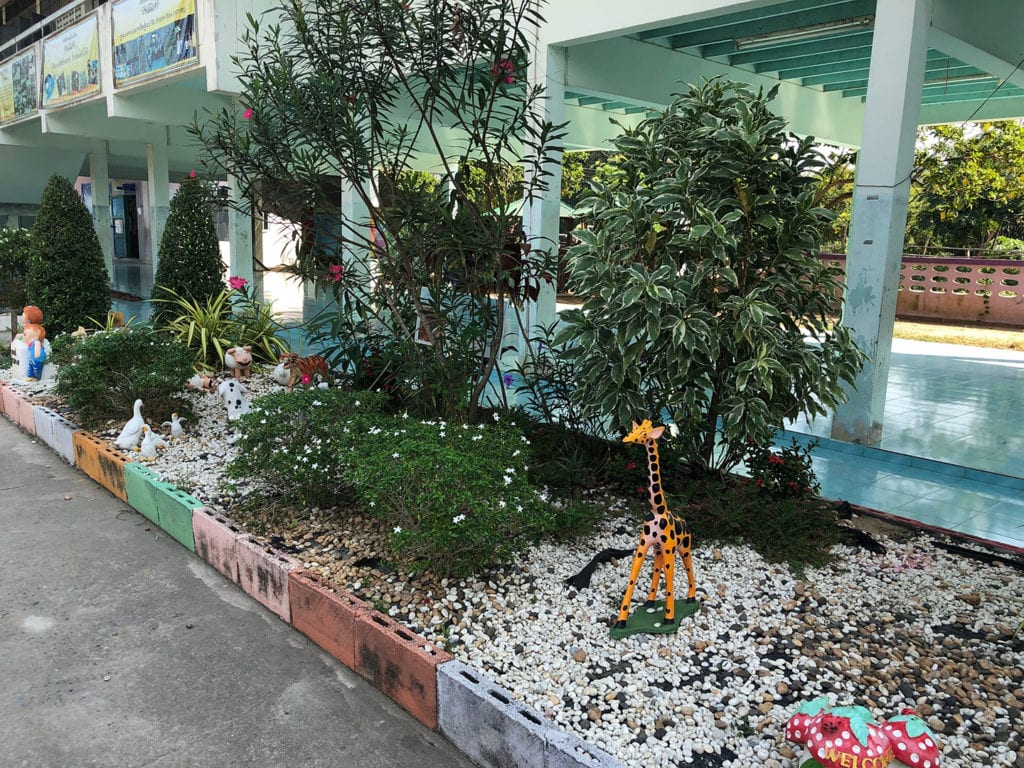About two hours’ drive northwest of Bangkok, a small farming community in the Kampangsaen district of Thailand is making huge strides to develop young people. Led by Mrs. Pichsinee Cheunchoowong, Baan Huai Rang Ket Primary School is piloting a cutting-edge program that challenges traditional methods of teaching.
Situated in a rural setting, the program is implementing an innovative educational technique called “problem-based learning.” It uses a social and emotional learning curriculum that prioritizes developing empathy, forming and maintaining positive relationships, and building pragmatic skills as well as decision-making abilities. Students are held to individually established, high expectations both on emotional and academic levels, and they are encouraged to pay attention to their attitudes toward themselves, their peers, and the learning process.
With the guidance and facilitation of their teachers, students also have opportunities to come up with solutions for issues they face in their communities. They are encouraged to think outside the box and express their ideas and imaginations.

Chickens raised by students and teachers on school grounds. Farming is an integral part of the lives of people living in this community. Photo: Meredith Slater/ActionAid
A typical day at the school begins with a morning reflection, a key component of the program. The students and teachers sit together in a circle and take time to quiet their minds, share their feelings, and prepare for the day. Everyone sits on the ground – all at the same level – as a physical symbol of the intention that there is no hierarchy within these circles. This simple act helps students let go of anything weighing on them – the morning’s chores, troubles at home – and learn that their school can be a safe space.

Chart created by students outlining the links between emotional, spiritual, intellectual, and physical qualities of learning, and the importance of morning reflection. Photo: Meredith Slater/ActionAid
The morning reflection prepares students for their day of integrated learning, which combines hard sciences with social sciences using interactive methods. Instead of splitting lessons into eight subjects, as is done traditionally in Thailand, classes are structured into broader, activity-based units. Combining a wide range of tools from storyboards to the internet, teachers use project-based learning to keep students engaged and teach them skills they can use even when they’re not at school.
The culinary unit, for example, incorporates resources children bring in from their farms at home – eggs, milk, sugarcane, lemongrass, corn – and teaches them how to cook with those ingredients, while simultaneously incorporating the arts, English language instruction, and mathematics into the lesson. For instance, students draw up plans for the unit, practice the English names of foods, and learn about measurements, all while cooking a delicious meal that they’ll get to share.
Extending the reach of this lesson beyond the walls of the school, children go home excited to cook with their families. Especially for those who experience difficulties at home, cooking can be a way for students to connect with their parents. This is just one of the many ways the program is helping to build stronger home lives and enhance valuable skills within the broader community.
11-week plan for the culinary unit, hand-drawn by students at the Baan Huai Rang Ket Primary School. Photo: Meredith Slater/ActionAid
As with so many projects supported by ActionAid, this one is spearheaded by a local changemaker who has dedicated herself to making a difference in her community. During my visit, I had the opportunity to meet with Principal Cheunchoowong at the school and learn about her drive toward innovation. It hasn’t been easy pulling her school out of the one-size-fits-all curriculum implemented in most schools. Besides dealing with pushback from parents and teachers, she might face repercussions down the road for not using the national curriculum.
In spite of these challenges, Mrs. Cheunchoowong is determined to make sure that young people have the space to learn in a positive, flexible environment. In partnership with a local education group, a nearby university, and ActionAid, Principal Cheunchoowong is successfully piloting a program that she hopes will spread not only to other primary schools within Thailand, but also to schools around the world.
Sustainability is the next big challenge Mrs. Cheunchoowong will tackle. She recognizes that without her at the helm, continuously pushing the envelope of this curriculum, it would likely not move forward. Mrs. Cheunchoowong is working alongside teachers and parents to build a community dedicated to this rights-based method of educating children. With her continued leadership, the support of the community, and their ongoing partnership with ActionAid, this curriculum can become a reality for students across Thailand.
Mrs. Pichsinee Cheunchoowong, Principal of Baan Huai Rang Ket Primary School, exchanging gifts with me and my husband, Jacob Hyman. Photo: Meredith Slater/ActionAid

